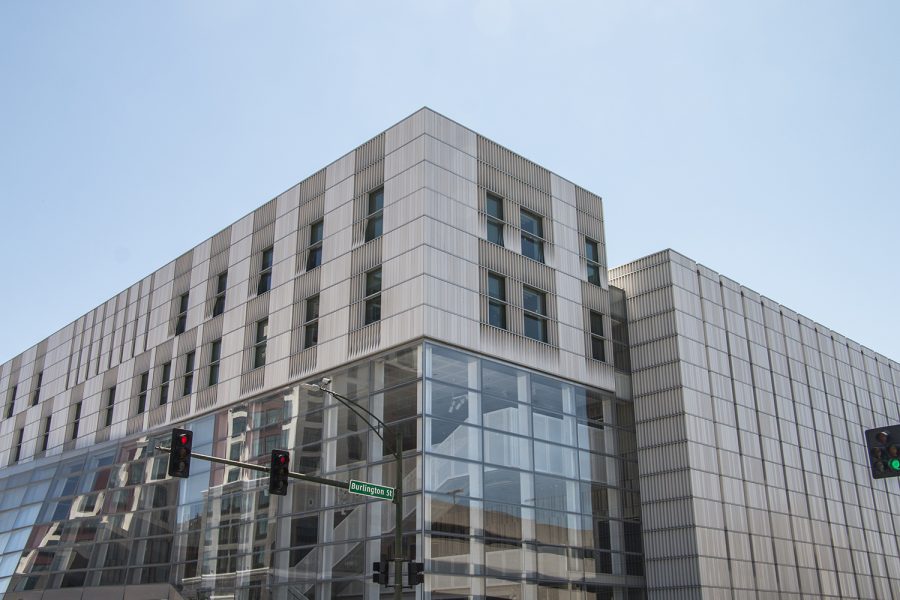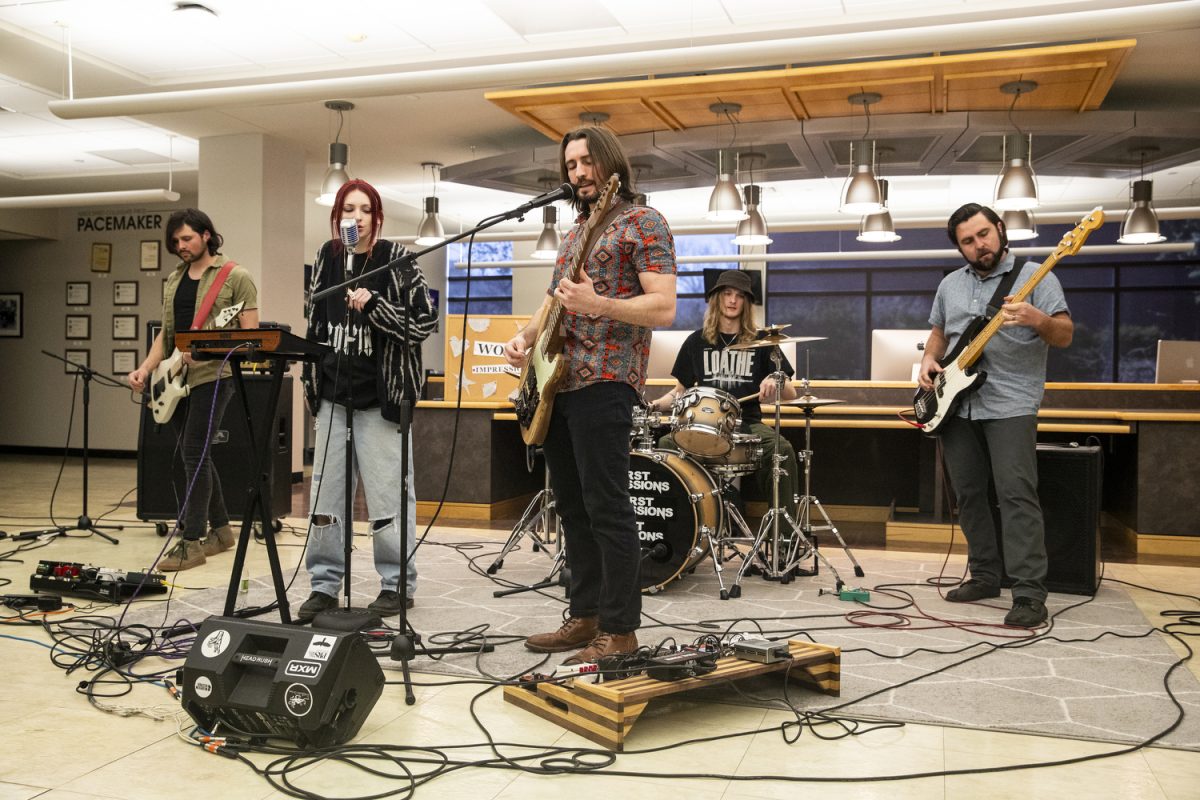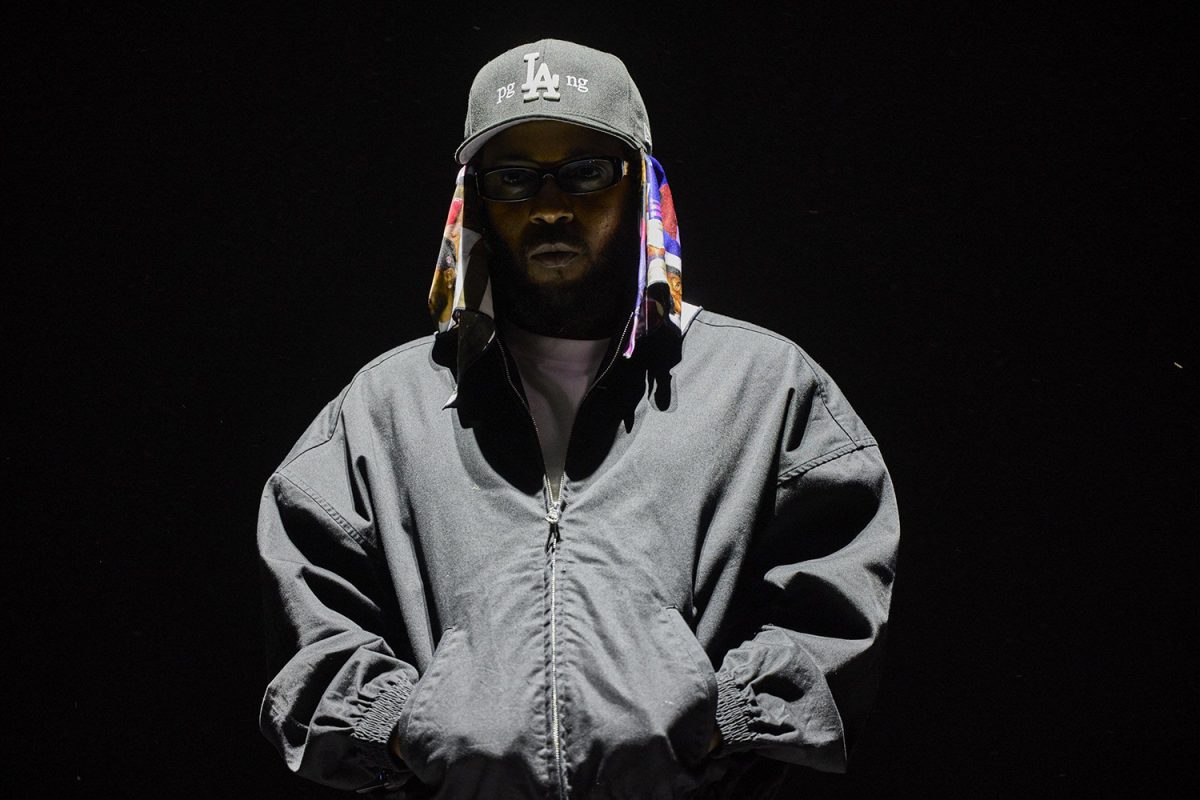The wind blows softly. American Stars and Stripes flutter in the breeze next to the German flag. The sky is overcast, but the hope and spirit from the crowd illuminate the city. Excitement charges the air as they wait in anticipation. Finally, the crowd lets out a roar of relief and exhilaration as the long-awaited words are uttered: "Mr. Gorbachev, tear down this wall."
Twenty-seven years ago, people gathered to watch as President Ronald Reagan demanded the destruction of the Berlin Wall at the Brandenburg Gate. Two years and five months after his declaration, the Wall dividing East and West Germany was torn down.
In celebration of this historic event’s 25th anniversary, the Old Capitol Museum will host "The Fall of the Wall: A Celebration of Freedom" at 6 p.m. today. A panel of Americans and East Germans will discuss their lives before and after the fall of the Wall, including Cindy Opitz, a student in East Germany during the Cold War.
"Anytime there are divisions like that, we need to look at what went into those divisions and how we can overcome them," she said. "I think it’s difficult for people who were born after the fall of the Wall to understand what it was like to live during the Cold War. When it was East versus West and each side was calling the other the enemy and evil. That led to a lot of tension in the world."
The event also showcases the museum’s newest exhibit, A Tear in the Iron Curtain, which opened on Sept. 18 and will be on display through Dec. 31.
"The exhibit explores Berlin from 1945 to 1989, looking at how and why the wall was created, life behind the Wall, and personal reflections of East Berlin through text panels, photos, and artifacts," said exhibit curator Shalla Ashworth.
After World War II, the defeated Germany was divided into four zones, as was Berlin. The western portions of the country and the city went to America, Britain, and France, while the eastern portion went to the Soviet Union.
In 1961, in an attempt to stop the flood of refugees into the West, East Germany erected the Berlin Wall.
Panelist and former East German citizen Torsten Opitz said the Wall served as a physical obstacle to keep East Germans from leaving the country.
"When I was born, the Wall was all ready there, so for me, it was just a fact of life," he said. "My mother lived a rather estranged life before the Wall, so when it was built it was much more problematic for her and her generation. The Wall didn’t begin to influence me until later in my life."
After meeting the woman who became his wife, Cindy Opitz, they endured a long and difficult process to get permission to marry and travel to the United States. Torsten Optiz said he remembered watching the Wall come down on television shortly after their move.
"It was a weird feeling. We had been fighting to move to America for over year, and then when we finally got here, six months later, my fellow citizens were able to just walk across the border," he said. "But I was happy, of course … The sentiment had changed from we are people to we are all one people."
Torsten said he was happy to come to America with his wife, but the history of Germany will remain relevant to him forever, as it should be for everybody.
"When the Wall fell and I talked to people about it, they didn’t even know there had been two Germanys and had been for 40 years," Torsten said. "It’s important for people to know about what happened so they can learn from it. East Germany teaches everyone that fencing people in and restricting their movement never bodes well and will not work in the long run.
EXHIBIT AND PANEL






